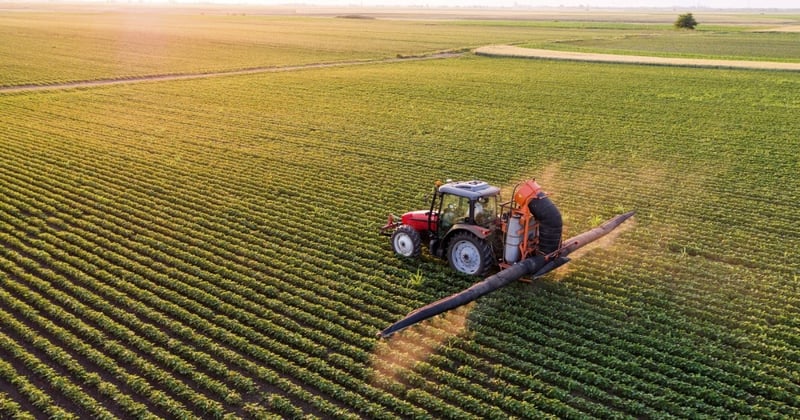
Toxic pesticide use not only negatively affects animals--learn how it impacts public health, too.
The widespread use of toxic pesticides as part of intensive meat production, or factory farming, is responsible for major losses in biodiversity and devastating our precious ecosystems. The overwhelming dependence on corn and soy as cheap, high-calorie ingredients in factory-farmed animals’ diets is fueling the massive use of pesticides in the US. The same system driving the decline of endangered species has a human health concern as well. Our new global report, The Hidden Health Impacts of Industrial Livestock Systems, documents the many hidden human health impacts from factory farming, including the damage to workers and their families caused by intensive use of pesticides to grow animal feed.
The production of corn and soy globally accounts for roughly 49% of all sales of highly hazardous pesticides. For this system to function, it requires the work of many people who are directly exposed to and impacted by the effects of pesticides.
Workers on intensive corn and soy plantations are subject to toxic chemical exposure, and over time, that exposure has had serious and lasting effects on their health. An estimated 44% of farm workers experience acute pesticide poisoning each year, and 11,000 die annually through incidents typically avoidable through proper precautionary measures. Pesticide exposure causes farm workers to suffer more chemical-related injuries and illnesses than any other workforce nationwide. These unsafe conditions for workers have led to health issues ranging from short-term effects such as stinging eyes, rashes, blisters, blindness, nausea, dizziness, and headaches to long-term impacts including infertility, neurological disorders, cancers, and even death.
These devastating effects of pesticide exposure not only impact the workers directly involved in spraying them but pose significant risks to their families and the communities living near the farms where they are sprayed. Pesticides can stay on the clothes of the workers and transfer to their families through physical contact. In many communities, particularly under-resourced communities and communities of color, schoolyards and residential areas are in close proximity to the farms where the chemicals are sprayed, and aerial drift can cause acute exposure and impact their health.
Many of the pesticides commonly used in the United States have been banned in other countries due to their harmful effects on humans. Paraquat, a chemical widely used in crop production, can damage the respiratory system, kidneys, and eyes, but continues to be approved for use--leaving many who get exposed at unnecessary risk. Several pesticides may also be applied together, creating compounding effects on humans that are not always well-understood.
This reliance on toxic chemicals is harmful and unnecessary. It is part of the current factory farming model of meat and dairy production, a system that has been shown to harm humans, animals, and our planet. Pesticides are just one of the many hidden ways identified in our report that industrial livestock systems are hurting human health.
By reducing the role of meat and dairy in our diets, we can curb the growth of factory farming and reduce our collective and individual pesticide footprint.
